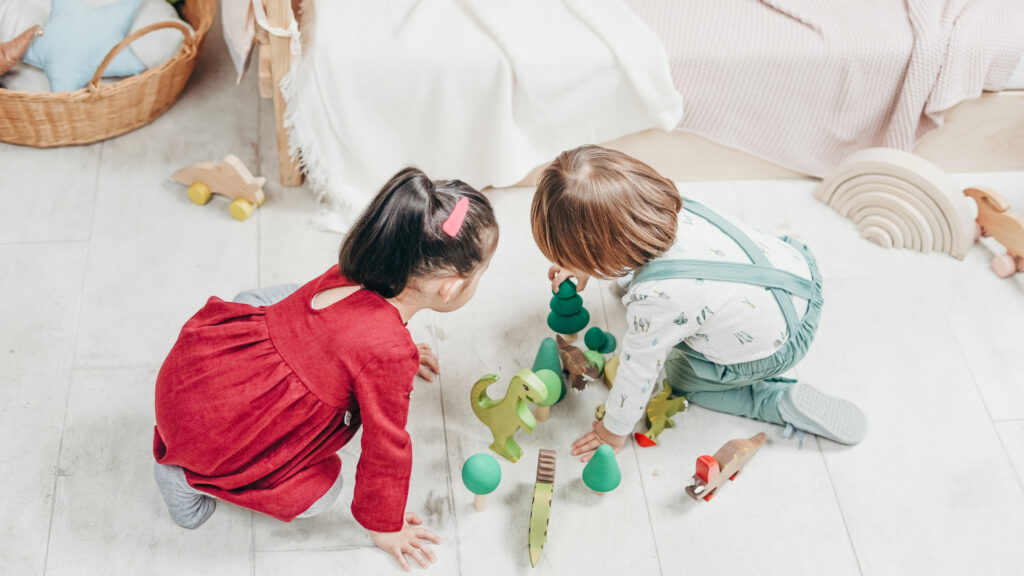How Play Therapy Helps Kids and Teens
I’m so glad that you are here and interested in pursuing play therapy for your child. Play therapy is a wonderfully therapeutic practice that can help kids, teens, individuals on the Autism Spectrum, and support parents in learning how to support their child with navigating life and the many ups and downs that it will have.
5 ways that play therapy helps kids and teens:
1. Process the feeling in a healthy manner. Versus holding in the feeling such as anger and allowing it to negatively impact areas of life. Such as interactions with peers at school or taking anger out on themselves through self-harm.
2. Develop healthy coping skills. Play therapy can help your child learn how to use coping skills to address emotional challenges. Such as learning how to think in a positive way or reducing unwanted behaviors like dishonesty.
3. Identify triggers that negatively impact thoughts, feelings, and behaviors. Kids experience triggers that can take place in just about every environment. Your child may be triggered by a change In plans, being told no, a loss of a loved one, or the change of the weather.
4. Learn to remove resentment and frustration. Resentment can negatively impact mood and behavior. Play therapy provides your child the space to dig deep into the resentment that they are holding and use play therapy strategies to process and release the emotion.
5. Build strong communication skills. As a parent, you more than likely are aware that kids tend to communicate a bit differently than adults. Play therapy provides your child with a long list of toys, crafts, and tools that can be used to support improving communication.
What happens in a play therapy session?
Let’s dive into a case study to better comprehend what takes place during a play therapy session.
Sarah is a 10-year 4th grader. She is sitting outside of her new counselor’s office with her parents. As she sits and waits, her mother reminds her that this will be fun. That the therapist is a play therapist, and she will have the opportunity to play. Outside of the counseling office, Sarah hears laughter inside and a few noises that cause her to think they are having fun. Shortly after, the door opens, and Sarah goes in by herself. Inside she sees a bean bag, a tray that is full of sand and toy dinosaurs, and a cool lava lamp. On the walls, she sees posters from movies that she has seen before. The counselor encourages Sarah to have a seat wherever she feels comfortable. Sarah decides to sit on the bean bag. Next to her Is a basket that is full of fidgets and bottles that have slime. Across from her is a bookshelf with board games that she has seen before and others that she hasn’t.
After getting each other, the counselor pulls out a colorful container filled with toys. The counselor asks Sarah to use any of the toys she would like as to create a story where one toy goes from feeling frustration to joy. Sarah decides to grab the Lego action figures. She tells the counselor a sorry of something that happened to her because that felt a bit easier for her to do.
Now let’s review the case study together.
- In the case study, you are able to note that Sarah was able to use the toys as a way to process thoughts and feelings.
- The counselor provided her with a therapeutic assignment that was age-appropriate.
- The therapeutic room was filled with items that create comfort, reduce tension, and provide kids with the opportunity to connect and process emotions in a healthy manner.
What age is appropriate for play therapy?
Play therapy is often connected to a therapeutic strategy that is used to support minor, individuals 18 and under with improving mental and physical health.
As a mental health counselor that works with kids and adults, I have found play therapy extremely effective with all ages. The reason is simple. Play therapy has so many tools that can be used by kids and adults.
Adults can benefit from play therapy by simply taking a moment to slow down and process learning. I want you to think about this. Have you ever watched a movie that you related to?
More than likely, yes.
You likely related to a character in the movie. Well, play therapy can provide a similar process. In this example, you can relate to the character and process why you relate to them with the play therapist. The play therapist can give you playdough with the task of trying to create the character from the movie. After this, you can move the character around through the scenes in the movie. This gives you the opportunity to process why you relate, express yourself in a fun and interactive way, and develop appropriate healthy coping skills.
How much is a play therapy session?
The fee for play therapy if not using insurance is $140.00 for the initial session and $110.00 for the follow-up sessions. Our office is in-network with varying insurances. Please contact your insurance company to identify your mental health coverage. Your fee for play therapy if using insurance will depend on your mental health coverage. Please contact our counseling office by phone at 336-663-6570 or email [email protected], if you have any questions regarding play therapy and payment for counseling sessions.





